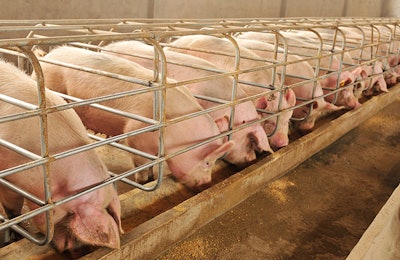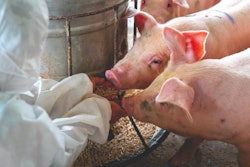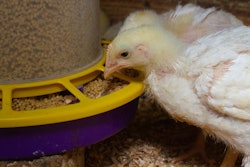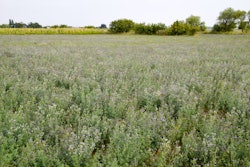
Should another supply chain disruption occur like the one prompted by COVID-19 in early 2020, producers need to adjust strategies to meet target weights.
Research at Kansas State University (KSU) is examining how moving pigs from a controlled diet to a corn-only diet or a lysine-deficient diet can help slow their growth – a study that could prove beneficial if another shutdown of pork processing capacity should occur.
While speaking at the 2020 KSU Swine Day, Robert Goodband, KSU professor and extension specialist for swine nutrition and management, highlighted various research projects being done at the university, including one led by doctoral program student Xhong-Xi “Johnson” Rao.
When a high number of COVID-19 cases started appearing among pork processing plant employees in spring 2020, numerous facilities had to slow down or temporarily halt production, leading to supply chain disruptions that resulted in the culling of many pigs. That situation showed the need to research ways to “slow down finishing pig growth performance, so they wouldn’t get too heavy and exceed packer buyer programs,” Goodband said.
The project led by Rao involved feeding one group of pigs a low-lysine diet, another group from a controlled diet to one that contained only corn, while another group was switched from a low-lysine diet to a diet of only corn during the last two weeks of production. The weights of those pigs were compared with those of pigs that remained on a controlled diet.
Those switched from a controlled diet to the all-corn diet were marketed about 14.1 pounds lighter than those that remained on a controlled diet. Those that were steadily fed a low-lysine diet were about 16.6 pounds lighter, while those that were on a lysine-deficient diet and switched to an all-corn diet in the last two weeks were about 26 pounds lighter.
Rao also looked at gain responses when pigs were returned to controlled diets in his study, which could also prove helpful for swine producers who are trying to reach a target weight.
“If we need to slow pig growth down, then hopefully with good market environments, have to increase growth rate, we have strategies with which we can do that,” said Goodband.
View our continuing coverage of the novel coronavirus (COVID-19) pandemic.













